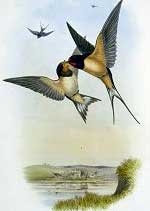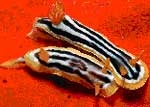Environmental experts from Dalhousie University (Canada) have conducted an extensive study to collect images of wildlife around the world entangled in discarded face masks littered by humans.
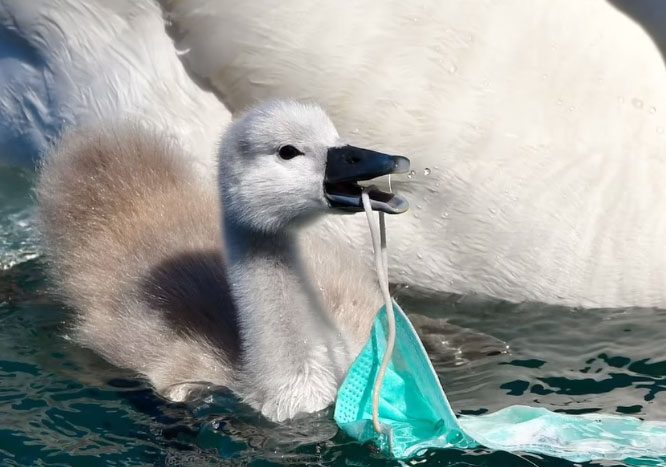
A swan in Italy with a discarded face mask – (Photo: PAOLO NICOLAI)
From the collected data, the team selected a collection of 114 of the most typical incidents from 23 countries worldwide. The photographs were taken between April 2020 and December 2021, during which the majority of the “victims” of the careless disposal of masks were birds.
According to the research team, not only face masks but also gloves, protective gear, and single-use testing equipment have become common global waste during the past two years of the pandemic. It is estimated that around 129 billion masks and 65 billion medical gloves were used each month during the pandemic.
However, in many parts of the world, this type of waste is not properly managed. In many developing countries, discarded medical masks are released into the environment without any form of intervention or treatment.
The consequence is that many animals have encountered problems due to discarded masks. Dalhousie University’s research found numerous species of fish, birds, and some mammals in Europe, the United States, and Asia affected by this type of waste.
Among the 114 published images of animals affected by masks, the highest number of incidents were recorded in the United States, followed by the United Kingdom, Canada, Australia, etc. Notably, nine cases were discovered post-mortem.
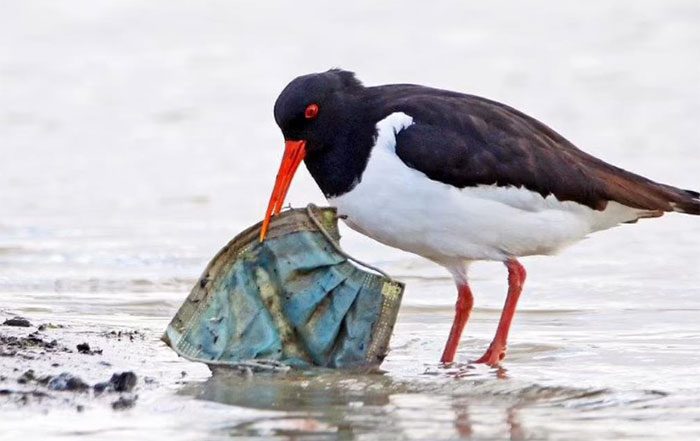
A bird hunting in the Netherlands encounters a face mask – (Photo: DIRK BLONDEEL)
Representatives of the Dalhousie research team hope that the published images will encourage authorities in many countries to continue to strengthen the management of used masks specifically and medical waste in general.
“Billions of small pieces from discarded masks will persist in many places around the world, from water environments to land, for at least several decades to come. Therefore, a thorough impact assessment is needed to propose solutions to address this issue in the near future,” the study states.
Previously, a study by scientists in California (USA) reported that approximately 8.4 million tons of plastic waste related to COVID-19 had been generated in 193 countries since the pandemic began until August 2021. Of this, about 71% of this waste is likely to drift onto beaches, carrying pathogens and risks to many other species.
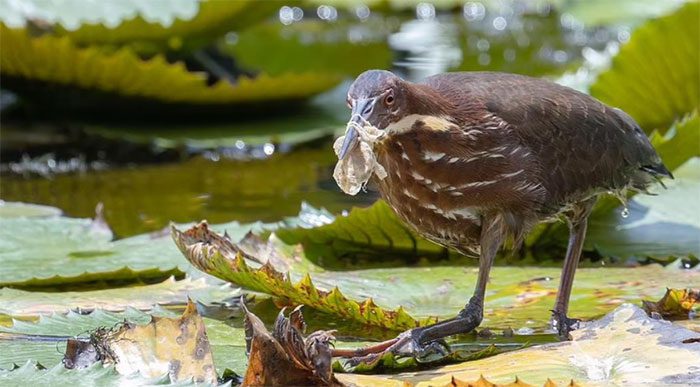
A bird caught with its beak in a face mask. Photo taken in Singapore – (Photo: ADRIAN TAY)
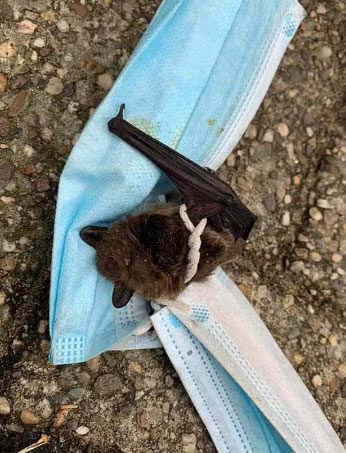
A bat completely entangled in two face masks in the Netherlands – (Photo: VAN OTTERLO)
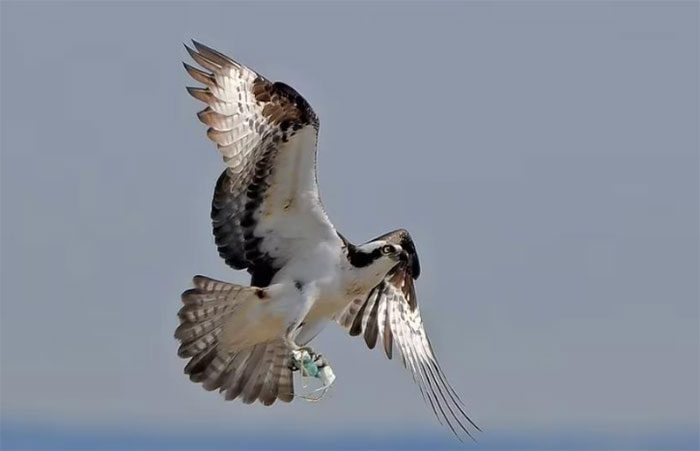
A face mask stuck to the legs of a hawk. Photo taken in the USA – (Photo: MONICA HAWSE)
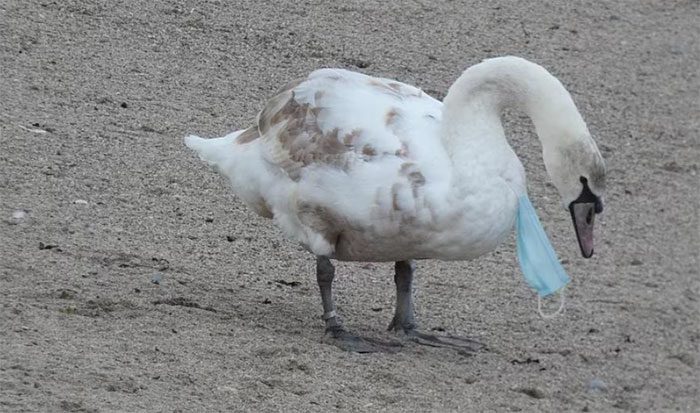
A face mask stuck on the body of a swan in Ireland – (Photo: ANNE BYRNE)









































